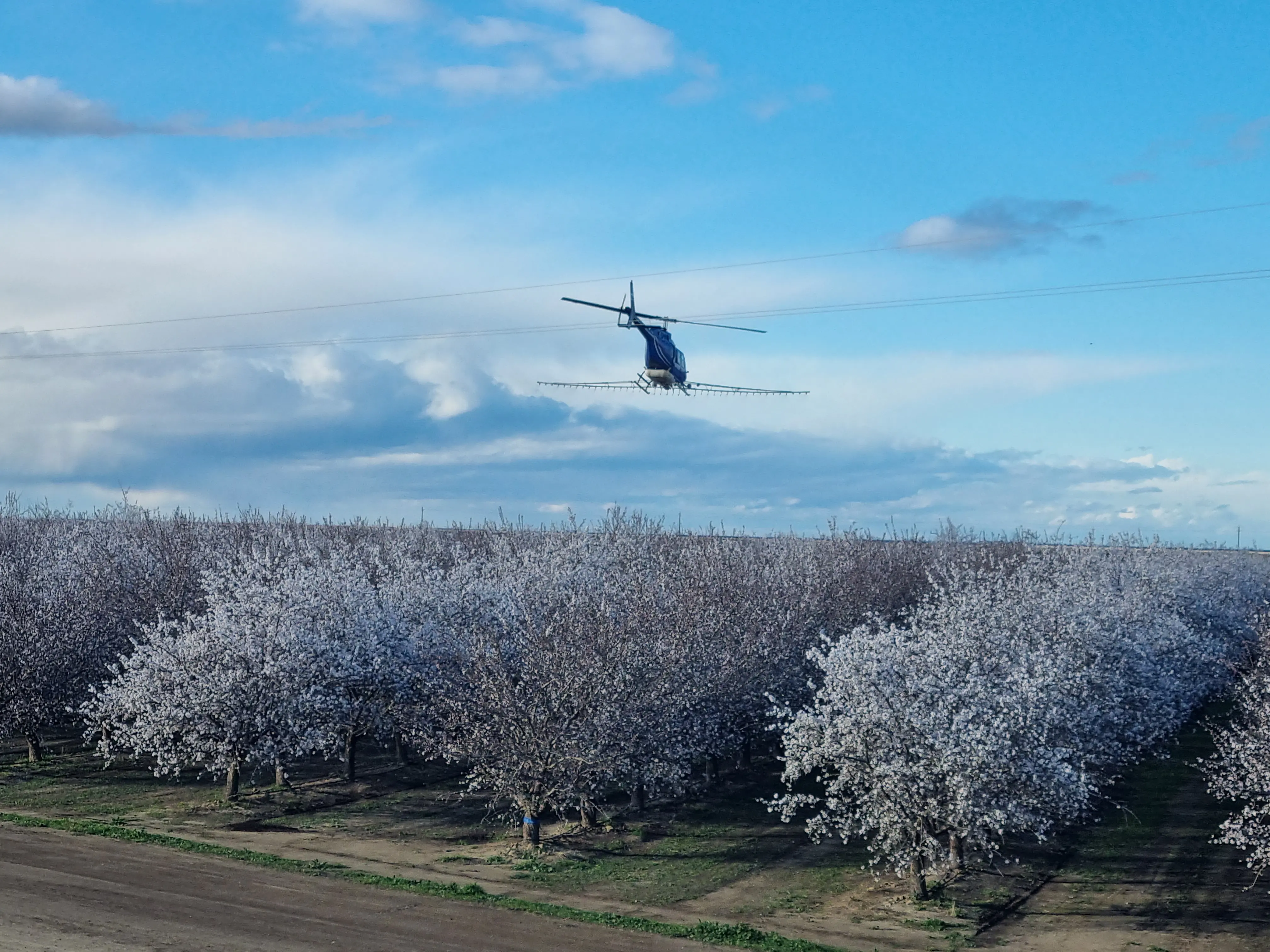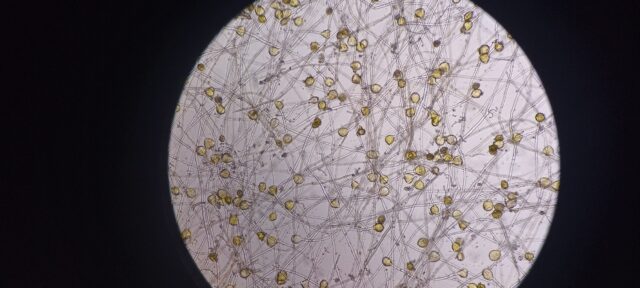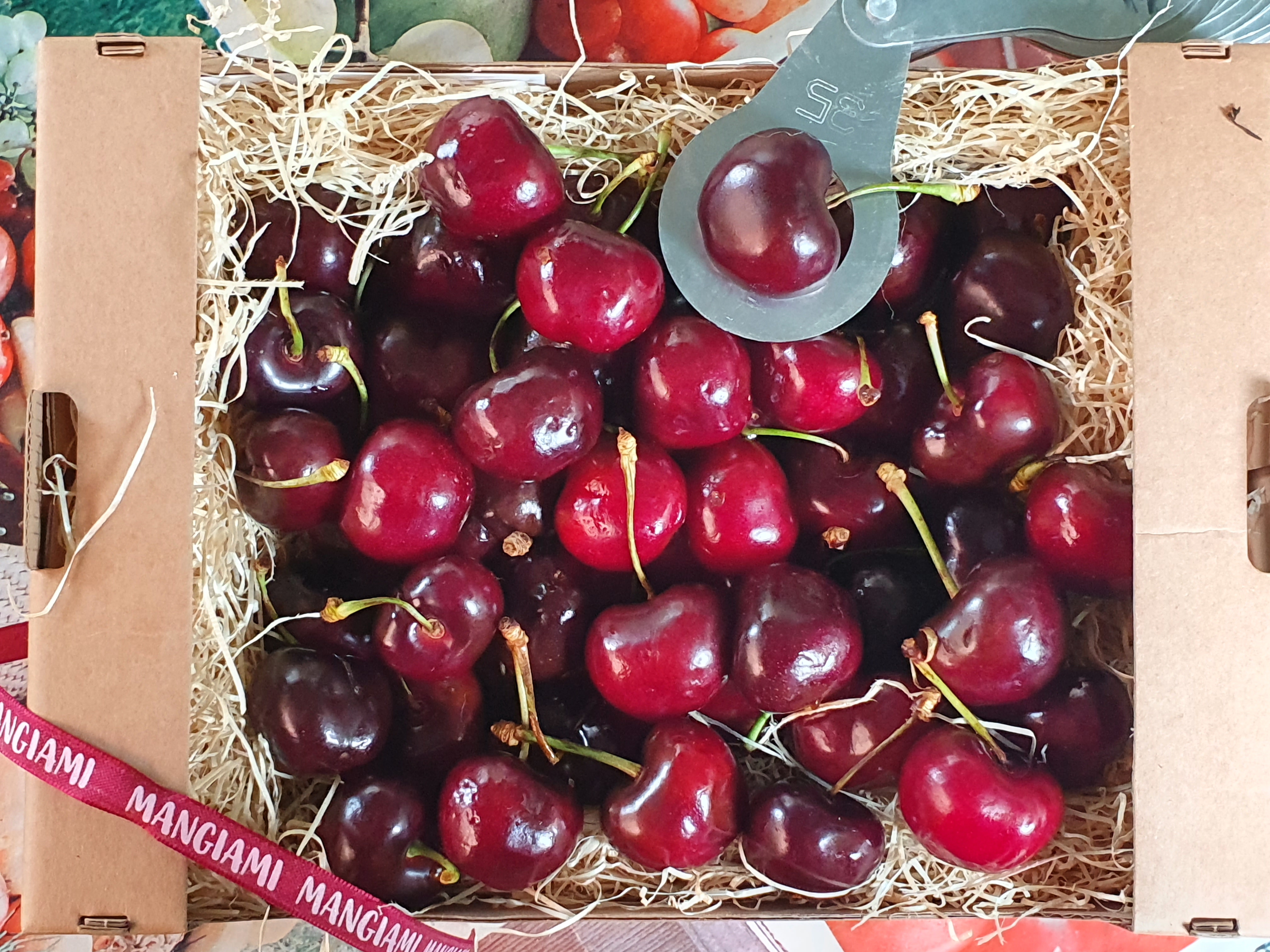The flight of a bee can help pollinate the flower of a fruit tree, but the aerial application developed by a Chilean company can pollinate an entire orchard. This is BioPollen Solutions, a start-up that, through species-specific flower extracts, develops high-quality pollen for valuable fruit trees such as avocado, cherry, and hazelnut.
Rodrigo Martínez, CEO of BioPollen Solutions, told Redagrícola that the results of this bioproduct, applied with a drone, helicopter, or light aircraft, have made them very happy.
"We have applied it to more than 5,000 hectares of various crops in Chile, the United States, Peru, and Colombia. In general, we can talk about production increases of over 20% compared to controls in the same season, while maintaining the grower's agricultural practices intact."
According to Martínez, particularly in the case of avocado, their trials have shown an increase of up to two extra tons per hectare, with some cases reaching four or five extra tons.
For hazelnuts, they achieved increases of 700 kilograms per hectare, which in some varieties like Tonda di Giffoni can reach 30%. In the case of cherries, they obtained increases of over two extra tons per hectare.
"All this without affecting the quality or other parameters such as size, color, fruit condition, Brix, all equal to or better than the control treatment," says the company's CEO.
A Pollination Bomb
The company, which initially started under the name "Avo Solutions", initially focused on avocado, but the difficulty of pollination in other species led it to consider and explore other crops.
"We currently have a commercial pollination service for cherries, avocados, hazelnuts, and almonds, and we are conducting field trials for three new crops. Our long-term goal is to become a pollination platform for a wide range of crops, which is why we decided to change our name," he explains.
Amid this growth, the company was recently acquired 100% by Baika Fruits, an avocado and nut producer, but remains an independent company with the goal of further scaling through funding into new markets.
 Image 1: Helicopter application of biopollinator in an almond field in Fresno, California.
Image 1: Helicopter application of biopollinator in an almond field in Fresno, California.
Scaling Assisted Pollination
But how did this idea come about? "I would say that pollination itself is a problem of numbers and scale. It's proven that if you take a brush, touch the male flower, and bring it to the female flower, assisted pollination works. The challenge is how to do this on millions of flowers at the same time; this requires massive technology," he explains.
All this in a context like that of 2023 in Chile, which had a warm winter and a cold spring by traditional standards, resulting in a series of disturbances not only in pollination but also in flowering and variety synchronization across different species.
"We have designed a highly concentrated liquid formulation of high-quality pollen, and this pollen pump is what we use with supermassive leaf application methods. Currently, we are applying with drones, helicopters, and planes, means that allow us to apply to a 200-hectare field in minutes," explains Martínez.
This aerial technology would be applied 2 to 3 times per season, depending on the species or variety. "The dosage is defined for each crop based on the required pollen load. Subsequently, the application is scheduled based on phenology, to apply it at the most receptive times," he explains.
In cases like almonds or cherries, which have shorter flowering periods, he emphasizes that two applications are sufficient, but in the case of avocado, which has a longer and more heterogeneous flowering period, three applications are carried out, "always aiming for the effectiveness of the result, besides the fact that you can quickly see if the application is working or not," he says.
One of the advantages of their product is the concentration level and pollen vitality, Martínez claims. "We spent several years developing pollen extraction and conservation technology to achieve high-quality standards. Our laboratory has state-of-the-art equipment and a team of pollen-specialized microbiologists, which has allowed us to create a unique technology worldwide," he says.
Another advantage of this bio-pollinator is that it is a completely harmless product for the field, as its only active ingredient is pollen and some natural co-formulants that allow product preservation.
 Image 2: Germinated pollen (in quality control), from BioPollen Solutions.
Image 2: Germinated pollen (in quality control), from BioPollen Solutions.
A Complementary Approach to Bees
According to Martínez, the use of this product is initially aimed at integrating with bees.
"When we approach a new producer, we always tell them that we start by testing the product on traditional bee use and feel reassured that we will have an increase in production sufficient to justify our services. Now, in several cases, we already have customers who apply only our product and have stopped using bees."
In this regard, they are already measuring the transition from integration to measuring what could be the replacement rate of the product compared to bee flight.
"Several entire avocado orchards in Chile have already stopped using bees and use only our product, and we are already conducting trials on almonds in the United States to test the replacement rate of our product compared to bees."
Controlling Variables
Issues generated by climate change, coupled with the increasing scarcity of bees - necessary for the production of the above-mentioned species - on a planet that requires more and better quality food have made the task of producers difficult. In this sense, Martínez emphasizes that "we always talk about control, because this is a technology that allows you to control the pollination process."
One of the main problems is the lack of synchronization between varieties and flowering, which BioPollen Solutions claims to have solved thanks to the ability to preserve pollen for several weeks, bridging the temporal gap between one crop's flowering and another.
"We collect, formulate our product, and wait with the preserved pollen until the variety of interest is in full bloom. And then we apply the product," explains Martínez.
Regarding the control of climate issues, such as very cold or rainy springs, it is known that insects tend to be tendono ad essere meno efficaci. Pertanto, sottolineano che la conservazione e l'uso di questo prodotto aiuta a controllare questa variabile, con un metodo di applicazione che non dipende dalle ore di freddo o di caldo per essere efficace, a differenza del volo delle api o di altri impollinatori.
"In the case of hazelnuts, there are seasons with a lower availability of quality pollen due to various climatic issues, such as rain during flowering or abiotic stress in summer. This is where we can intervene with our quality and viable product, significantly increasing the availability of pollen in the fields," concludes Martínez.
Source: Biologicals Latam
Images: Biologicals Latam
Cherry Times - All rights reserved












